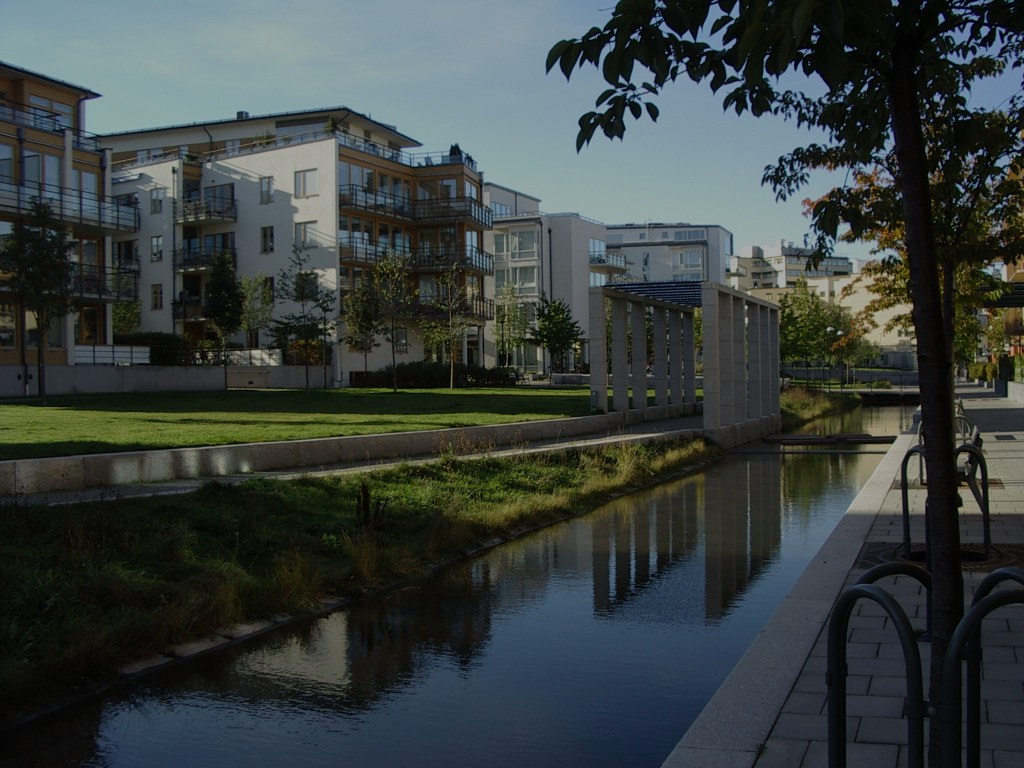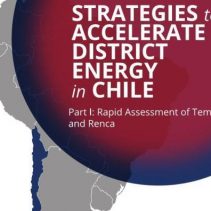United Nations Environment Program. In 2017 Stephen completed a “Rapid Assessment” to find ways to reduce air pollution and reduce greenhouse gas emissions caused by burning firewood to heat buildings in Chile. The assessments included the City of Temuco and the Santiago suburb of Renca. The work was part of United Nations Environment’s District Energy in Cities Initiative, and was completed under contract to the Sustainability Solutions Group.
In the community of Temuco, the challenge is that 93% of the air pollution comes from burning firewood for heat in single homes. Current heating practices cause significant health issues, as well as other forms of suffering such as energy poverty. These homes are distributed over a wide area of the city, and the assessment found that reaching them with conventional district energy is not economically viable.
The assessment proposed one solution in the form of a “hybrid district energy” system, in which:
- Wood that is currently burned in inefficient woodstoves in single homes would be burned instead in a Combined Heat and Power plant located in the centre of the city. The plant would be equipped with pollution controls to reduce its particulate emissions to levels below those of natural gas boilers.
- The plant would burn provide heat through a conventional district energy network to larger buildings in the centre of the city.
- The plant would also provide electricity for distribution through the existing electrical network.
- This electricity produced would be used to operate heat pumps (which would not use HFCs, but instead would use CO2 or R-744) to replace firewood for space heating and also fossil fuels for domestic hot water in single homes.
- A utility (or a government agency) could approach homeowners with an offer to pay for the cost of an energy retrofit and the cost of the CO2 heat pumps. Homeowners would repay this cost through a low-interest loan over time.
High-level modelling estimated that this hybrid district energy concept could reduce air pollution by 99% and greenhouse gas emissions by 98%, and would also reduce the cost of space heating and domestic hot water to householders by 25% (accounting for both the cost of the loan to pay for the energy retrofit and heat pump, and the cost of electricity to operate the heat pump). Importantly, the concept was estimated to produce an economic rate of return high enough to attract investment from the private sector. As a result, the hybrid district energy concept would not require subsidies from taxpayers.
In the community of Renca, the assessment found an opportunity to build a district energy network to supply waste heat from a thermoelectric generating plant to replace fossil fuels currently burned by companies in an industrial park, and also to buildings in the community.
The assessment concluded:
- Initiatives to reduce air pollution will also reduce greenhouse gas emissions from fossil fuels, as well as Black Carbon and methane from burning firewood inefficiently. In the City of Temuco, for example, the hybrid district energy concept is estimated to reduce greenhouse gas emissions by 6 tonnes per year per household.
- The prospects for accelerating clean energy in Chile are excellent. Government bodies and individuals share a sense of urgency regarding the need to reduce the health effects of air pollution.
- Chile has an opportunity to use the country’s abundant renewable energy resources, including industrial waste heat, geothermal, solar, wind, and biomass to reduce dependence on imported fossil fuels while improving air quality and reducing greenhouse gas emissions.
- If clean energy solutions are tailored to the context of each community, then clean energy can be economically viable in Chile today.
- Chile can learn from the errors and successes with clean energy in other countries.
The assessment resulted in a report with over thirty-five technical and governance recommendations for the Government of Chile and UN Environment.
A high-level summary of the Rapid Assessment of Temuco and Renca was presented at a workshop in Santiago on June 13, 2017 as Finding Solutions to Make District Energy a Reality in Chile.


